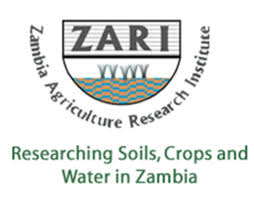Zambia Working To Improve Agriculture With Nuclear Science - Part 2 of 2 Parts
Part Two of Two Parts (Please read Part One first)
ZARI projects are working to develop stable, high-yield and superior storage crops. Beyond pests and disease resistance, ZARI is also working on crops that can survive adverse conditions such as drought or soil with high acidity. Ghana in northwest Africa has already used nuclear radiation to mutate the genes of cocoa plants in the hopes of producing hardier plants. This same technique could be used in Zambia to produce hardier crops.
Once crops have been harvested, radiation can be used to kill any microorganisms and increase the shelf life of the crop. It is claimed that the use of radiation to treat harvested crops produces “negligible changes caused to the products in terms of appearance, taste and nutritional value compared to regular preservation methods.” Such irradiation does not make the food radioactive.
It is estimated that over seventy-five billion tons of soil are eroded each year from global agricultural areas. It is mainly the top soil that is eroded each year. Plants get most of their water and nutrients from top soil. Nuclear technology has been utilized to track and mitigate the rate and scale of soil erosion in any particular area. Zambia loses about three hundred hectares of its forests every year. Rainfall patterns in Zambia have become increasingly erratic in recently. There are long dry spells and then heavy downpours which have combined to increase erosion and erosion-prone areas. Heavy erosion can lead to the silting up of hydro-electric reservoirs seriously reducing energy production. Use of nuclear techniques have helped to reduce erosion as much as sixty percent in some areas of other African nations.
Nuclear isotopes can be used to measure the ability of a particular soil sample to store water and nutrients. The level of fertilizers and pesticide waste can also be measured by such techniques. The nation of Benin in northwest Africa has used such techniques to improve crop yields while reducing fertilizer and pesticide use. Applied in Zambia, such techniques could increase crop yields and save money.
The Food and Agriculture Organization (FAO) is an intergovernmental organization that has a presence in one hundred and thirty countries. It is a specialized agency of the U.N. leading international efforts to reduced world-wide hunger. “It is also a source of knowledge and information and helps developing countries in transition modernize and Improve agriculture, forestry and fisheries practices, ensuring good nutrition and food security for all.” The International Atomic Energy Agency is the “world's center for cooperation in the nuclear field, promoting the safe, secure and peaceful use of nuclear technology and inhibiting its use for any military purpose, including nuclear weapons.” With the creation of the Centre for Nuclear Science and Technology, Zambia is on track to join with seventy other countries that are partnering with the FAO and the IAEA in the use of nuclear science and technology to advance food safety.
Cooperation with these countries and organizations could help Zambia expand its agricultural sector. This could, in turn, generate billions of dollars in national income and thousands of jobs. This Zambian nuclear project could become a major turning point with respect to Zambia’s economy. Zambia could become a regional food basket.
